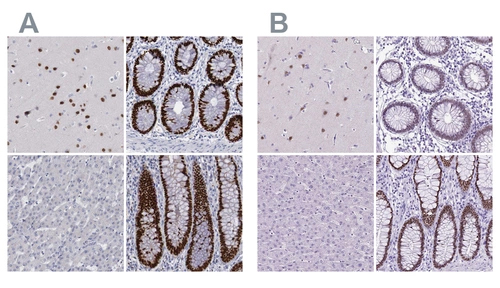Stop Guessing. Start Publishing.
Get HPA-Validated Antibodies.
Finally, reproducible results you can trust..
Antibodies developed through the Human Protein Atlas (HPA) project are rigorously validated using standardized protocols across multiple applications, including immunohistochemistry (IHC), Western blot (WB), immunocytochemistry/immunofluorescence (ICC-IF), and ChIP.
Each antibody is backed by extensive data, including tissue expression profiles, staining images, and validation criteria — all openly available. With HPA antibodies, you're not just buying a reagent; you're accessing a globally recognized reference framework for protein expression in human tissues.

